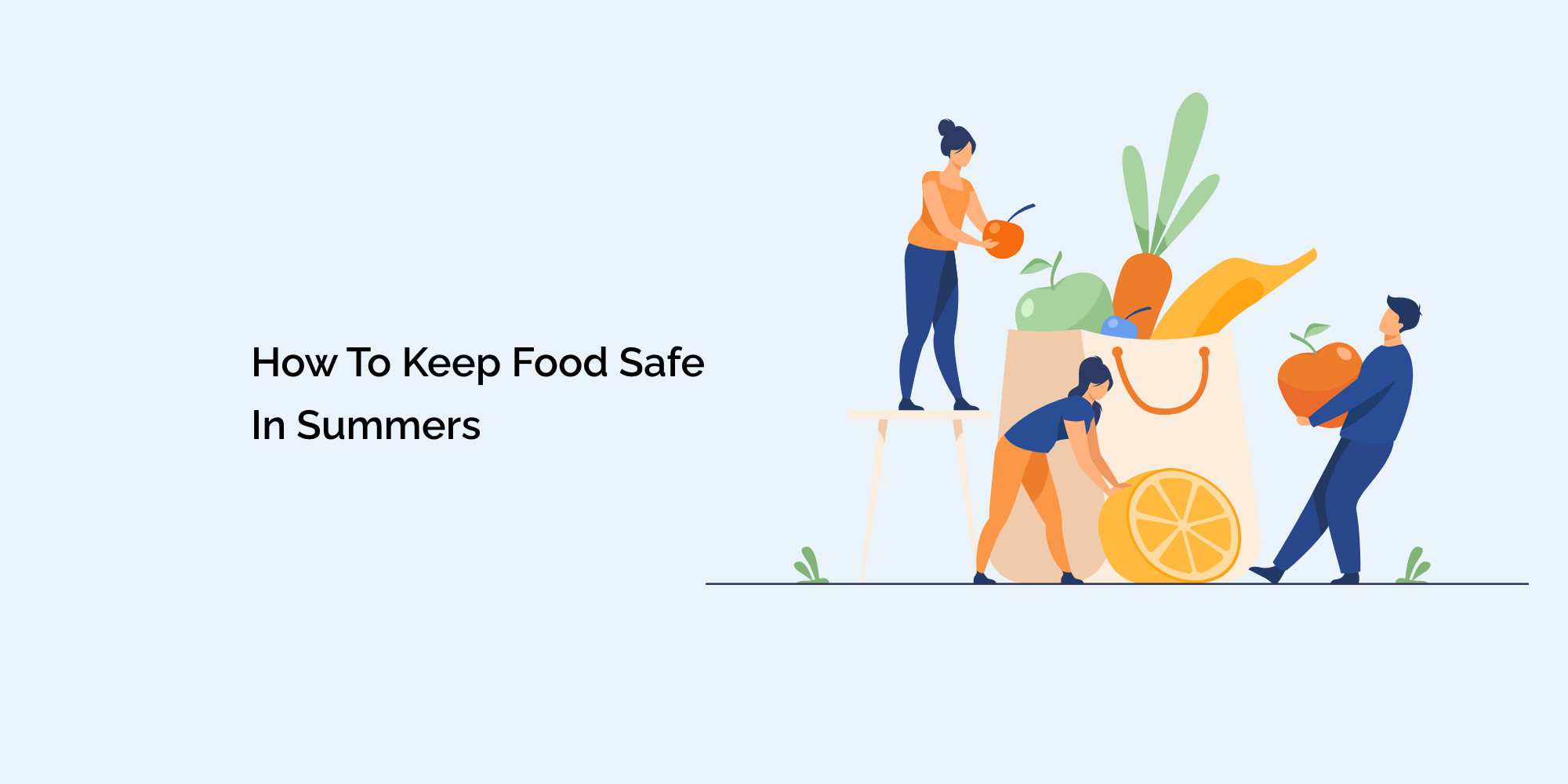Summers bring warm weather, picnics, and outdoor gatherings. However, the higher temperatures also create an environment conducive to foodborne illnesses. Therefore, proper food safety practices become even more crucial during the summer months to prevent food spoilage and maintain the health of individuals. This blog will explore essential tips and guidelines for keeping food safe during the summer. By following these practices, you can ensure that your meals remain fresh, delicious, and, most importantly, safe for consumption.
Understanding the Risks of Summer Food Safety
- Bacteria growth in warm temperatures: Warm weather accelerates the growth of bacteria, such as Salmonella and E. coli, on food. This can lead to foodborne illnesses if proper precautions are not taken.
- Spoilage due to heat: High temperatures can cause food to spoil quickly, increasing the risk of foodborne diseases. Handling, storing, and cooking food properly is crucial to prevent bacterial growth and spoilage.
Safe Food Handling and Preparation
- Cleanliness is critical: Wash hands thoroughly with soap and water before handling food. Clean and sanitize all utensils, cutting boards, and surfaces used during food preparation to prevent cross-contamination.
- Separate raw and cooked foods: Keep raw meats, poultry, and seafood different from other foods to avoid cross-contamination. Use respective cutting boards, plates, and utensils for raw and cooked foods.
- Thoroughly cook food: Ensure that all food, especially meat, poultry, and seafood, is cooked thoroughly to kill harmful bacteria. Use a food thermometer to check the internal temperature.
- Marinate safely: Marinate food in the refrigerator, not at room temperature, to prevent bacteria growth. If using marinade as a sauce, set aside a separate portion before adding raw meat.
Proper Food Storage and Transportation
- Refrigeration is crucial: Refrigerate perishable foods, such as meats, dairy products, and leftovers, within two hours of cooking or purchasing. In hot weather (above 90°F or 32°C), refrigerate within one hour.
- Maintain refrigerator temperature: Keep the refrigerator temperature below 40°F (4°C) to slow bacteria growth. Use a refrigerator thermometer to ensure the temperature is accurate.
- Store raw and cooked foods separately: Store raw meats, poultry, and seafood in leak-proof containers or sealed plastic bags on the bottom shelf of the refrigerator. Keep them separate from ready-to-eat foods.
- Be mindful of the "Danger Zone": The "Danger Zone" is the temperature range between 40°F (4°C) and 140°F (60°C) in which bacteria multiply rapidly. Avoid leaving food in the "Danger Zone" for over two hours (or one hour in hot weather).
Outdoor Dining and Food Safety
- Practice good hygiene: When eating outdoors, ensure that everyone washes their hands before handling food. Provide hand sanitisers or wet wipes for convenience.
- Keep food covered: Protect food from insects and other contaminants using food covers or mesh screens. This prevents flies and bugs from landing on your food.
- Monitor the temperature: If you're hosting an outdoor gathering, monitor the temperature of perishable foods throughout the event. Please keep them in coolers or on ice to maintain a safe temperature.
- Limit food exposure: Avoid leaving perishable foods, such as salads or dairy-based dishes, out in the sun for extended periods. Serve them in small portions and replenish them as needed to minimize their time at room temperature.
Signs of Food Spoilage and When to Discard
- Use-by and expiration dates: Pay attention to use-by and expiration dates on food packaging. Discard any food items that have passed their expiration dates or show signs of spoilage.
- Signs of spoilage: Look for signs of spoilage, such as mould, off-putting smells, slimy texture, or unusual discolouration. When in doubt, discarding the food is safer to avoid the risk of foodborne illness.
Certainly! Here are some frequently asked questions (FAQs) related to keeping food safe in the summer:
Why is it important to keep food safe in summer?
It is essential to keep food safe in summer because higher temperatures create an environment that promotes the growth of harmful bacteria in food. Consuming contaminated food can lead to foodborne illnesses, which can cause severe health issues.
How can I prevent foodborne illnesses during summer?
To prevent foodborne illnesses, follow proper food handling practices. This includes washing hands, separating raw and cooked foods, cooking food to appropriate temperatures, refrigerating perishable items promptly, and practising good hygiene during outdoor activities.
How do I know if food has spoiled?
Signs of spoiled food include off-putting odours, unusual texture (such as sliminess), mould growth, and discolouration. If you have any doubts about the safety of the food, it is best to discard it to avoid the risk of foodborne illnesses.
Conclusion
Keeping food safe during the summer months is vital for preventing foodborne illnesses and ensuring the well-being of your family and guests. You can enjoy delicious meals without compromising safety by following proper food handling, storage, and transportation practices. Remember to practice good hygiene, cook thoroughly, separate raw and cooked foods, refrigerate perishables promptly, and monitor outdoor temperatures. With these essential tips, you can confidently embrace summer festivities while prioritizing food safety.








